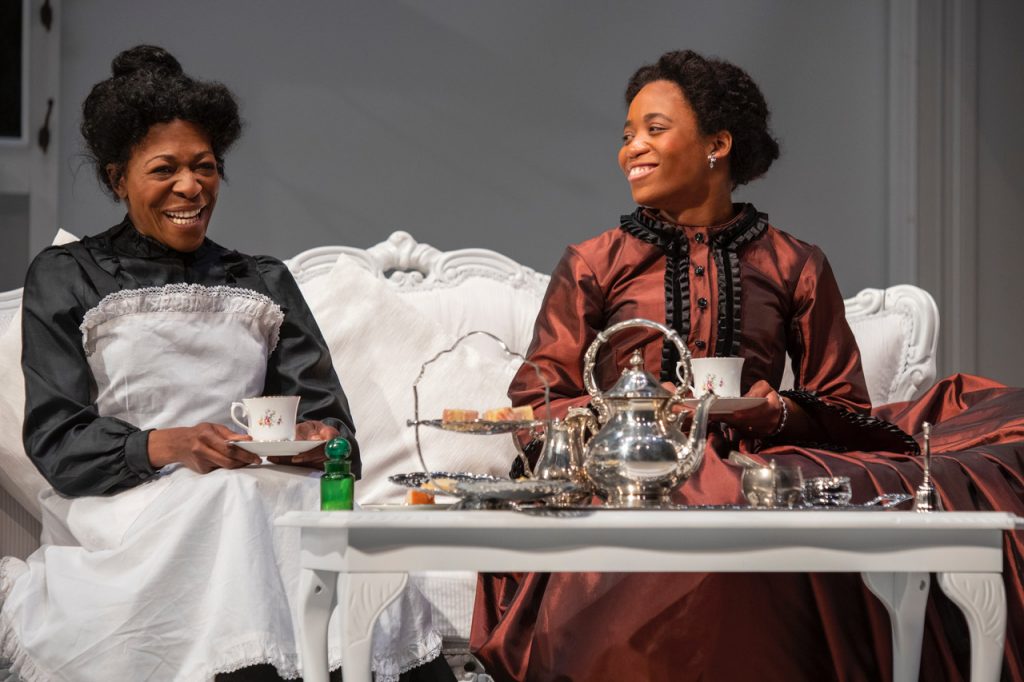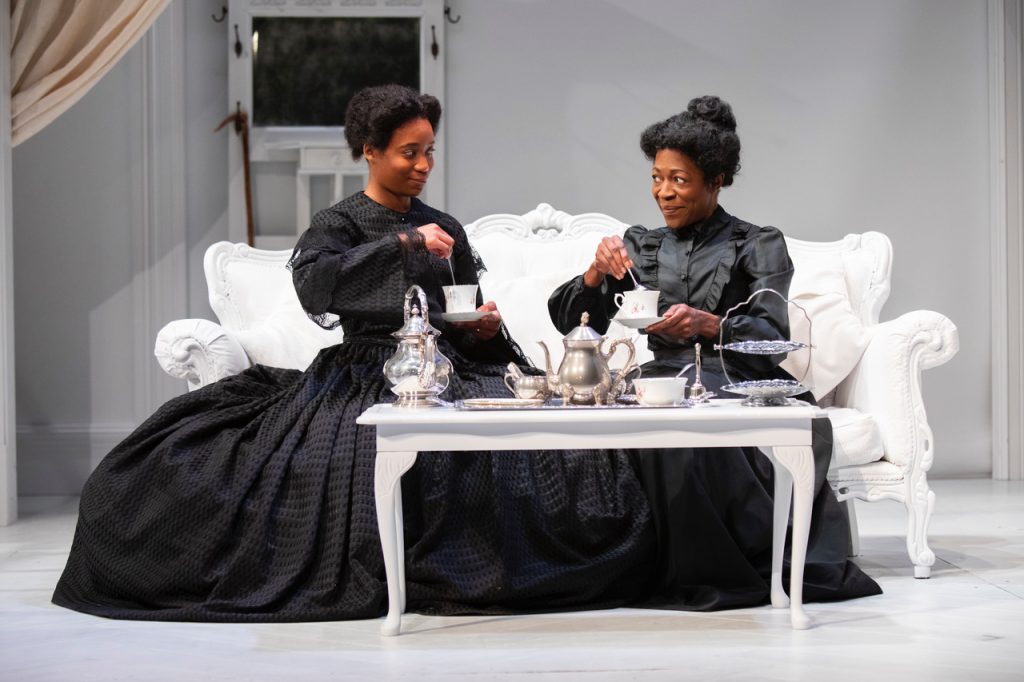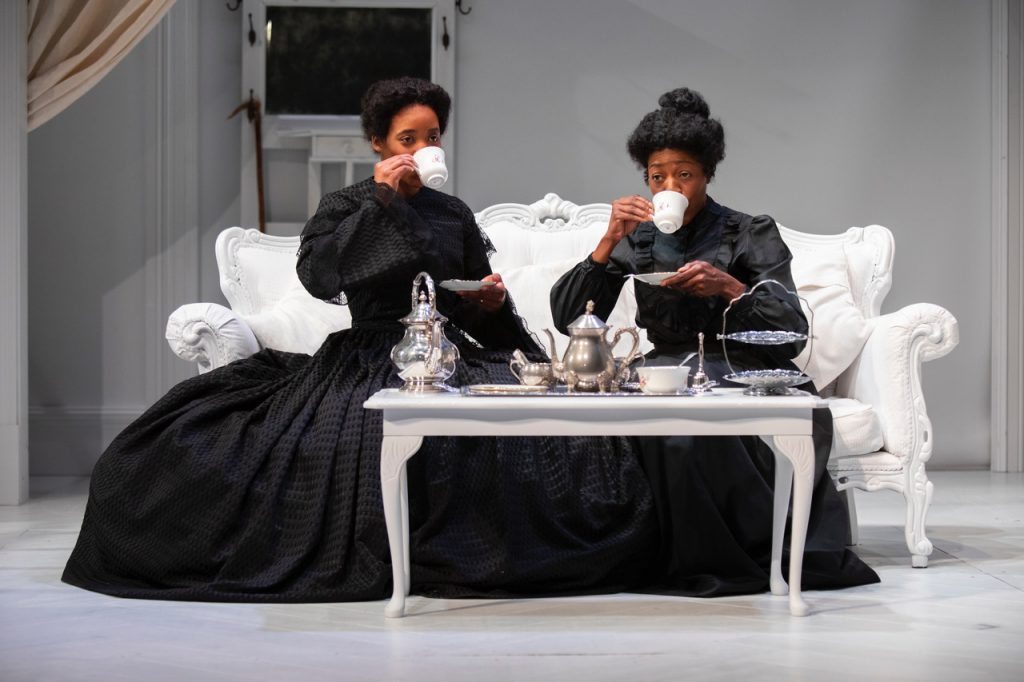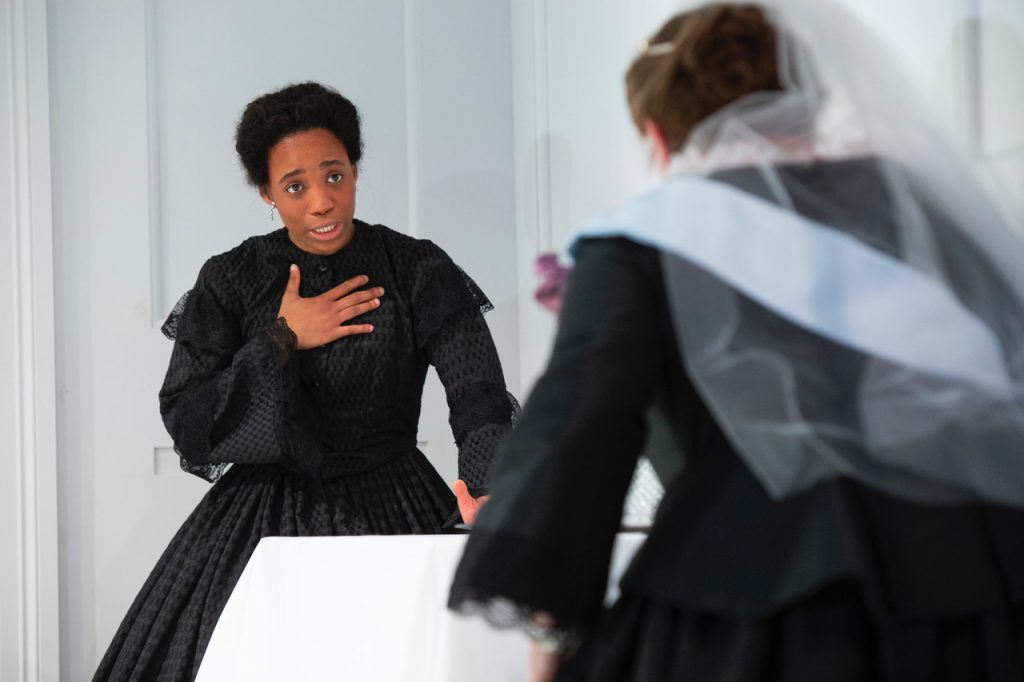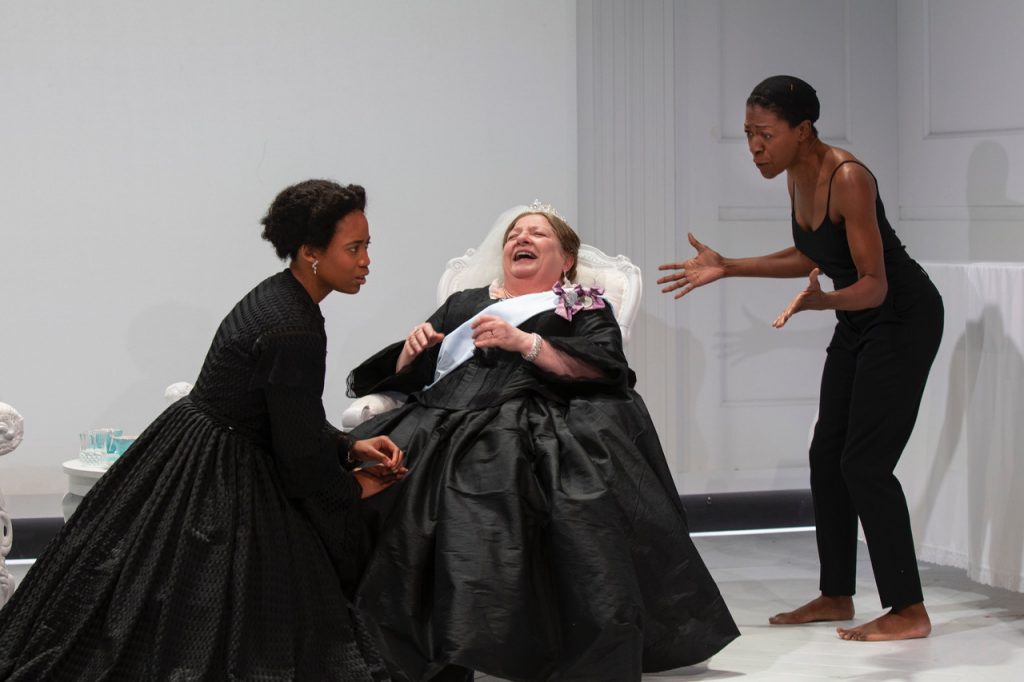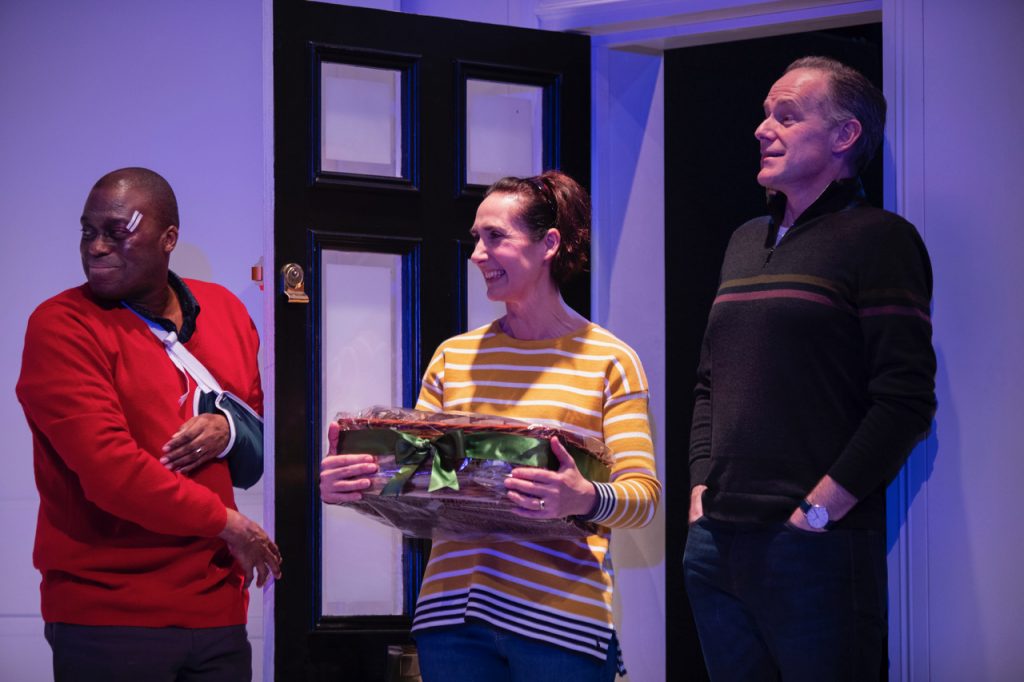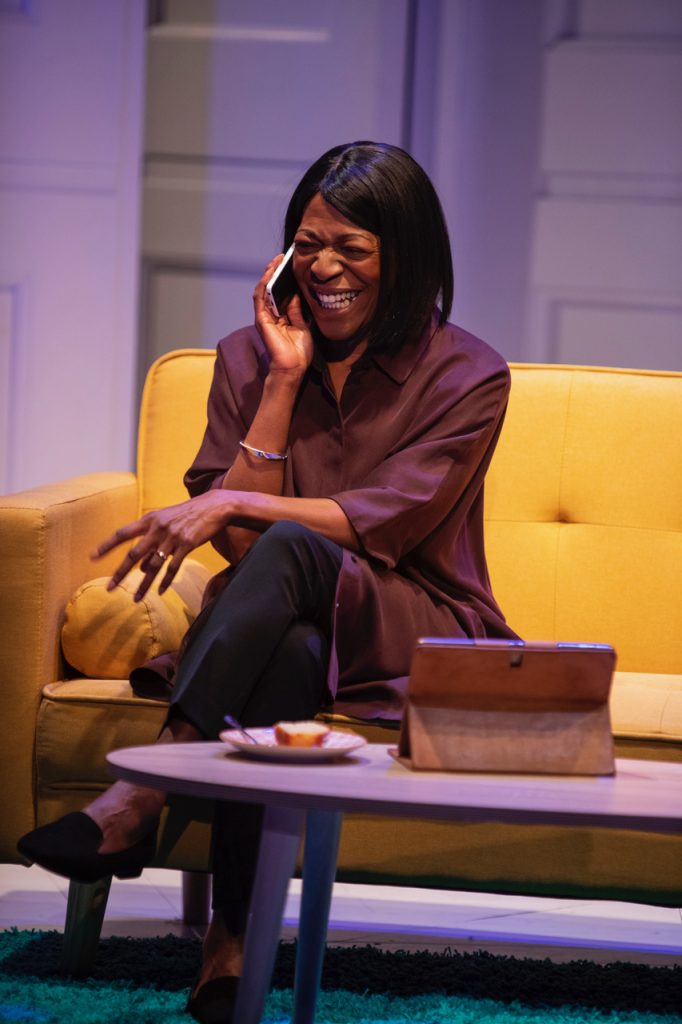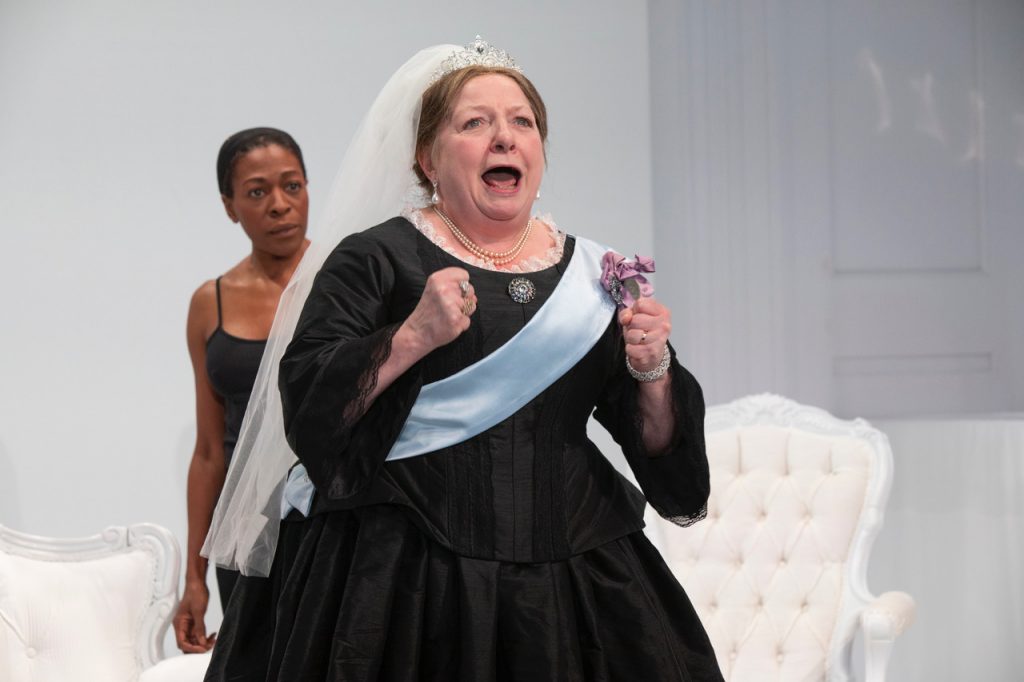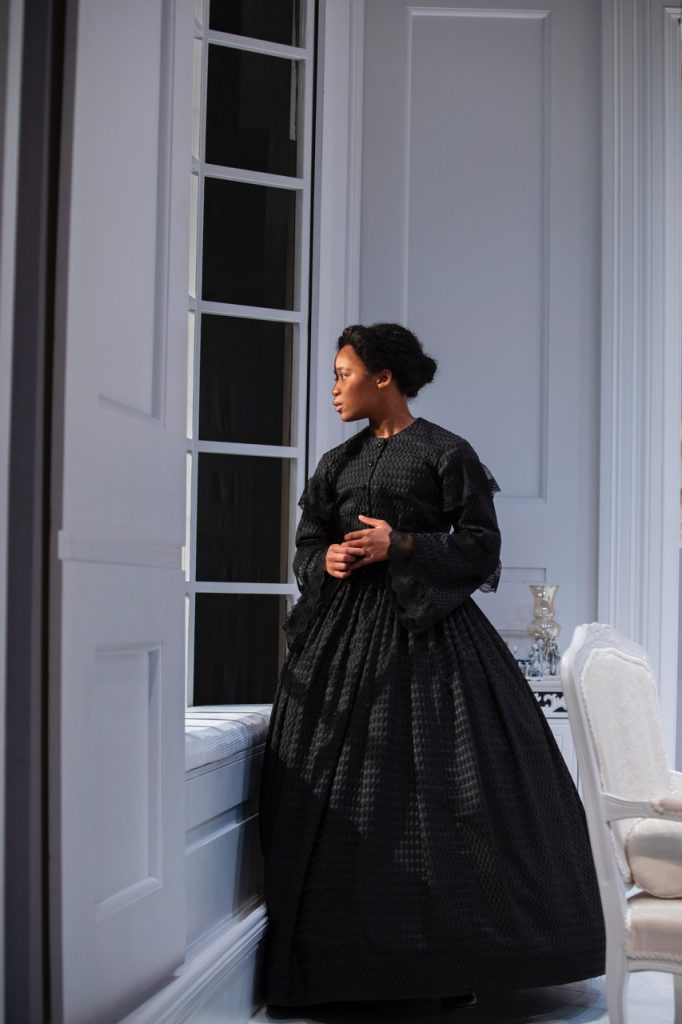Set against the most British institution is one of the most explosive British plays on race I’ve seen in years.
The Gift (see listing) begins in 19th century where we meet ‘Princess’ Sarah, an African child adopted by Queen Victoria on the eve of her return to Africa. In the opening scene Sarah is teaching her hapless maid Aggie how to host a tea party played with comic brilliance by Donna Berlin.
‘Princess’ Sarah (Shannon Hayes) has all the trappings of royalty. She’s cultured, well connected and accomplished, but she still has to endure slights from English society. Her outward trappings are not enough to protect her against racism even those imposed upon by people below her aristocratic class.
‘a breath-taking piece of theatre’
In the play she has ambitions to teach etiquette to the “natives” in Africa but faces opposition. My mind couldn’t help but think about the last black woman in the Royal Family who had ambition.
The second act is a breath-taking piece of theatre. The play explores the ugly undercurrent of racial politics in Britain seldom seen and acknowledged on screen or on stage against the backdrop of another tea party when new neighbours pop overbearing platitudes and gluten free cakes.
Donna Berlin turns in another seamless performance, as a very different Sarah, this one in present day Britain. (Berlin also played maid Aggie in Act one) Sarah is part of a black middle-class couple, again ostensibly protected by trappings such as education, status and even their views on identity. Only they aren’t. The message seemingly that nothing can protect you from racism endemic in British society.
‘Janice Okoh’s clever and hilariously funny exploration of what it means to be black in Britain offers a layered and complex perspective’
Janice Okoh’s clever and hilariously funny exploration of what it means to be black in Britain offers a layered and complex perspective. At times, it’s difficult and uncomfortable to watch but Okoh’s humour helps to ease the audience’s discomfort and Dawn Walton’s direction intensifies both the humour and the subtext of the writing. In a society, where we are encouraged to make everything ‘palatable’ or view ‘both sides’, I appreciated the uncompromising candour of this play.
There is a little too much exposition in the third act as both Sarah’s end up in a scene with Queen Victoria but modern day Sarah’s appearance to Princess Sarah in a vision is cleverly orchestrated. The final act tying both time periods together and connecting the history of the past with modern day. What would you say if you could speak to your ancestors?
The Gift bears all thorny, deft racial discourse that you would see in a James Baldwin play alongside the humanity. When art articulates the black experience in a way that feels true and genuine, I listen and so should you, especially when it is in as honest a form as this.
The Gift is in many ways essential viewing fpr Black Britons trying making sense of themselves in modern UK.























